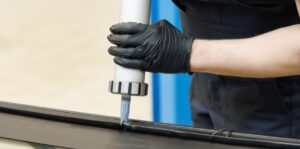Top Energy-Efficient Appliances to Reduce Your Electricity Bill
In today’s world, where rising electricity costs and environmental concerns are at the forefront, energy efficiency in modern homes has never been more critical. Energy-efficient appliances not only alleviate the burden on your electricity bill but also contribute significantly to reducing your carbon footprint. By adopting cutting-edge, energy-efficient technology, households can experience considerable savings while playing an essential role in conserving the environment. This comprehensive guide will inform you about the top energy-efficient appliances to improve your home’s efficiency and sustainability.
Energy-Efficient Refrigerators
Refrigerators are one of the few appliances that run continuously, making their energy efficiency paramount. An energy-efficient refrigerator attributes its performance to advanced compressors, superior insulation, and precise temperature controls, ensuring they consume less power.
An important indicator of efficiency is the Energy Star rating, a trusted symbol for identifying products that meet strict energy performance standards set by the government. Refrigerators with Energy Star ratings often consume 15-20% less energy compared to non-certified models.
Some top brands that excel in energy efficiency include Samsung, LG, and Whirlpool. Notable models such as the LG InstaView Door-in-Door and Samsung’s Family Hub continue to receive commendations for their low energy use.
To maximise the efficiency of your refrigerator:
– Set the temperature to between 3°C and 4°C for the refrigerator and -18°C for the freezer.
– Ensure the door seals are intact to keep cold air from escaping.
– Clean the coils regularly to maintain optimal efficiency.
High-Efficiency Washing Machines
High-efficiency washing machines are designed to use less water and energy compared to conventional models. These machines achieve superior cleaning by using sophisticated drum designs that require less water and are capable of higher spin speeds to extract more water from clothes, reducing drying time.
Front-load washing machines generally offer better energy efficiency compared to their top-load counterparts, using approximately 50% less water and up to 30% less energy. When considering water usage and energy consumption, front-load washers such as the Bosch 800 Series and the Electrolux EFLS627UTT come highly recommended.
For those leaning towards top-load washing machines, models like the Maytag MVWB765FW have measurably improved energy efficiency. To ensure you’re making an environmentally sound choice, always look for models with high Energy Star ratings.
Energy-Saving Dishwashers
Dishwashers have increasingly become sophisticated with energy-saving features. These features include soil sensors, which adjust the cycle length and water temperature, efficient water filtration systems, and advanced spray jets.
Choosing the right size is also essential. A dishwasher that’s too large for your needs may waste water and energy, while an undersized unit may require more frequent use. Energy-efficient models typically reduce water usage by using less water per cycle without compromising cleaning performance. Renowned energy-saving models include the Bosch 300 Series, KitchenAid KDTE334GPS, and the Miele G 7000 Series.
To further lower energy consumption:
– Always wash full loads.
– Use the ‘eco’ or energy-saving wash cycle.
– Allow dishes to air dry instead of using the heating element.
Efficient Heating and Cooling Systems
Heating, ventilation, and air conditioning (HVAC) systems are responsible for a significant portion of household energy consumption. Updating to energy-efficient systems such as modern heat pumps or smart thermostats can lead to substantial long-term savings.
Heat pumps are particularly efficient as they transfer heat rather than generate it, making them cost-effective for both heating and cooling your home. Brands like Daikin and Mitsubishi offer high-performance heat pumps with excellent efficiency ratings.
Smart thermostats, such as Nest and Ecobee, enable precise temperature control and programmable settings, ensuring that heating and cooling are used only when necessary. These devices learn your schedule and adjust settings to peak efficiency throughout the day.
When choosing the best energy-efficient appliances for your home, consider the system’s capacity and your specific needs to avoid under or overutilisation.
Energy-Efficient Lighting Options
Changing the lighting in your home is one of the simplest ways to improve energy efficiency. LED (light-emitting diode) and CFL (compact fluorescent lamp) bulbs offer significant advantages over traditional incandescent bulbs, including reduced energy consumption and longer lifespans.
LEDs use at least 75% less energy and last up to 25 times longer than incandescent bulbs. CFLs, while not as efficient as LEDs, still use about 70% less energy than their incandescent counterparts. Modern LED bulbs from brands like Philips and Cree provide excellent brightness, warmth, and energy savings.
For a whole-home transition to energy-efficient lighting:
– Replace incandescent bulbs with LED or CFL alternatives.
– Consider smart lighting systems that allow for automation and remote control.
– Use motion sensors and dimmers to further increase efficiency.
Conclusion
Energy-efficient appliances offer numerous advantages, from drastically lowering electricity bills to promoting a more sustainable environment. By making thoughtful choices, such as upgrading to energy-efficient refrigerators, washing machines, dishwashers, HVAC systems, and lighting options, households can see immediate benefits both financially and ecologically.
Taking even small steps to replace old, inefficient appliances can lead to significant impacts. Over time, the savings accumulate, making the initial investment worthwhile. Embracing energy-efficient technology not only enhances comfort and convenience but also contributes to the global effort of reducing environmental impact. Now is the perfect time to invest in energy-efficient appliances for a sustainable, cost-effective future.
If you gained new insights from this article, explore our blog, Gimkit, for more enlightening content.
Share this content:














Post Comment